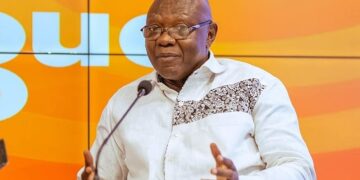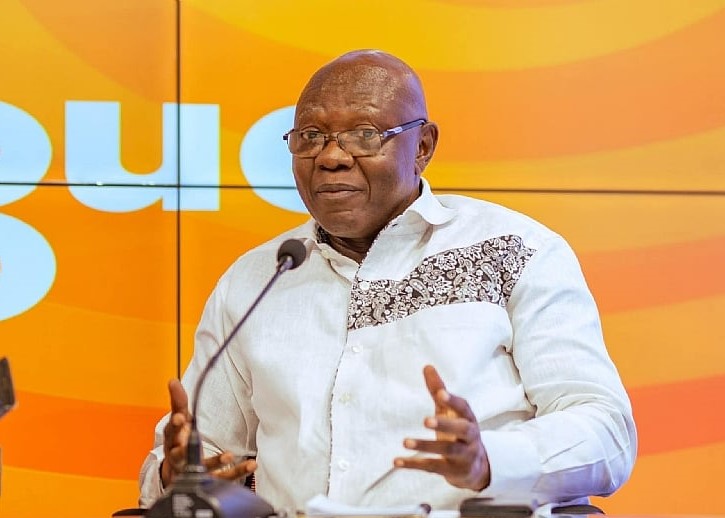In every society, intellectuals occupy a unique and indispensable role. They are not simply individuals with degrees or academic titles; they are meant to be the conscience of the nation, the thinkers who question, analyse, clarify, and illuminate.
Their work helps society understand itself, interrogate its problems, and navigate its way toward progress.
But what happens when the very individuals entrusted with this responsibility descend into the same emotionalism, partisanship, and reactive politics they are supposed to critique? Ghana received a sobering example recently through the public clash between Dr. George Domfeh and Prof. Ransford Gyampo.
What many dismissed as mere television drama is, in truth, a symptom of a deeper and more troubling decline: the weakening of intellectual responsibility in our public discourse
Intellectuals: Mirrors of the Society They Emerge From
It is often said that intellectuals reflect the nature of the society that produces them. They are not immune to the pressures of tribalism, political tension, economic hardship, or national frustration.
When society becomes polarised, intellectuals may mirror that polarisation. When political dialogue becomes shallow and confrontational, they too may be swept into its turbulence.
This is what made the Domfeh–Gyampo confrontation so unsettling. Instead of elevating the national conversation, the professors echoed the very hostility and partisanship that have become common in Ghana’s political space.
The academy, which should model discipline and reflective thinking, has begun to feel the heat of a nation struggling under deepening political tensions.
Intellectuals: Holders of the Mirror for Society to Self-Reflect
While intellectuals may reflect society, their higher and nobler calling is to hold up a mirror for society to reveal its contradictions, expose its weaknesses, and guide it toward clarity.
Throughout history, transformative thinkers have shaped nations by challenging societal norms, not surrendering to them.
They include:
1. Kwame Nkrumah, whose political ideas ignited Africa’s liberation movements.
2. Nelson Mandela, whose moral clarity defined a nation’s healing.
3. Amílcar Cabral, who emphasised that liberation must begin with intellectual honesty.
4. Frantz Fanon, who exposed the psychological scars of oppression.
5. Gustavo Gutiérrez, who connected faith with justice for the marginalised.
6. Wole Soyinka, whose voice against tyranny remains powerful.
7. Chinua Achebe, who revealed Africa’s postcolonial dilemmas with unmatched insight.
These thinkers did not mirror society’s flaws; they illuminated them. They compelled society to think beyond emotion, beyond slogans, and beyond partisan noise.
This is what it means to be an intellectual.
The Cost of Intellectual Abdication
The Domfeh–Gyampo incident must not be treated as isolated entertainment. It reflects a broader decline that carries dangerous consequences for national development.
1. The Normalisation of Aggressive Partisanship
When intellectuals resort to personal attacks and political loyalty overrides academic discipline, it signals that reason no longer holds value. This sets a worrying precedent for students and young citizens who look to scholars for guidance.
2. Decline of Institutional Credibility
Universities are meant to be sanctuaries of sober debate, evidence-based reasoning, and the pursuit of truth. When their representatives sound like partisan activists, public trust in these institutions erodes.
3. Loss of Intellectual Authority
If intellectuals behave like politicians, who will hold the political class accountable?
Who will provide balanced, objective analysis?
Who will defend national interest over political interest?
Without intellectual neutrality, a nation loses one of its strongest defences against extremism and manipulation.
4. Generational Impact
Young people absorb what they see. If intellectuals model confrontation instead of clarity, emotion instead of evidence, and partisanship instead of principle, these habits will become generational.
This is how the decline of a democracy begins, not with violence, but with the decay of thought.
A Dangerous Decline Creeping In
Societal decline rarely happens suddenly. It begins quietly when individuals who should know better choose convenience over principle.
When this continues unchecked:
1. public debate loses depth,
2. critical thinking is replaced by tribal loyalty,
3. institutions weaken from within, and
4. national development becomes impossible.
This is the path Ghana risks if its intellectual class continues to drift away from its duty.
A Renewed Call to Responsibility
Ghana does not need intellectuals who echo the chaos of partisan politics. It needs thinkers who rise above the noise, those who challenge society to think, not react; to question, not follow; to reflect, not inflame.
The next generation is watching closely.
They will inherit either a culture of responsibility or a culture of spectacle.
A culture of truth or a culture of convenience.
A culture guided by intellectual integrity or one driven by emotionalism.
The responsibility placed on the intellectual community is enormous—and the consequences of failure are far-reaching.
Ghana cannot afford an intellectual class that seeks applause instead of truth.
It cannot afford thinkers who abandon their calling for political validation.
The nation’s future depends on those willing to think deeply, speak boldly, and act ethically.
For when intellectuals abdicate their responsibility, the nation loses its compass and the journey ahead becomes dangerously uncertain.




















